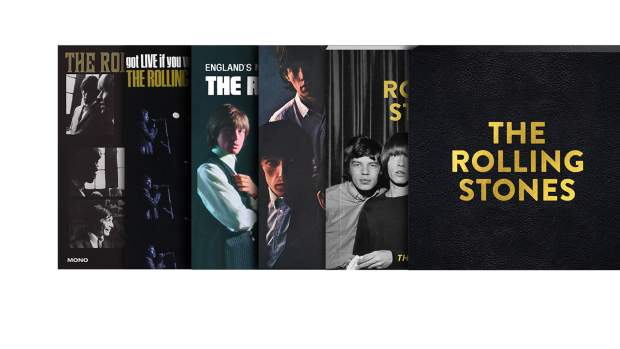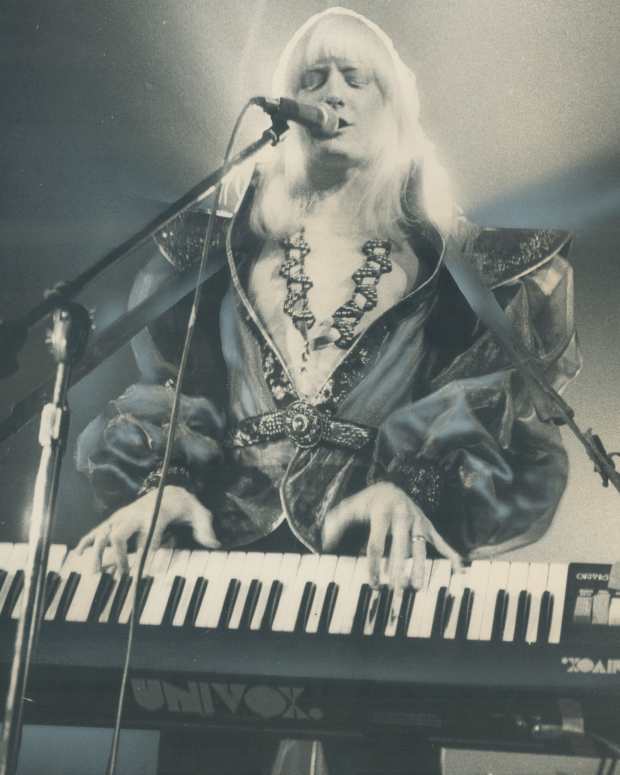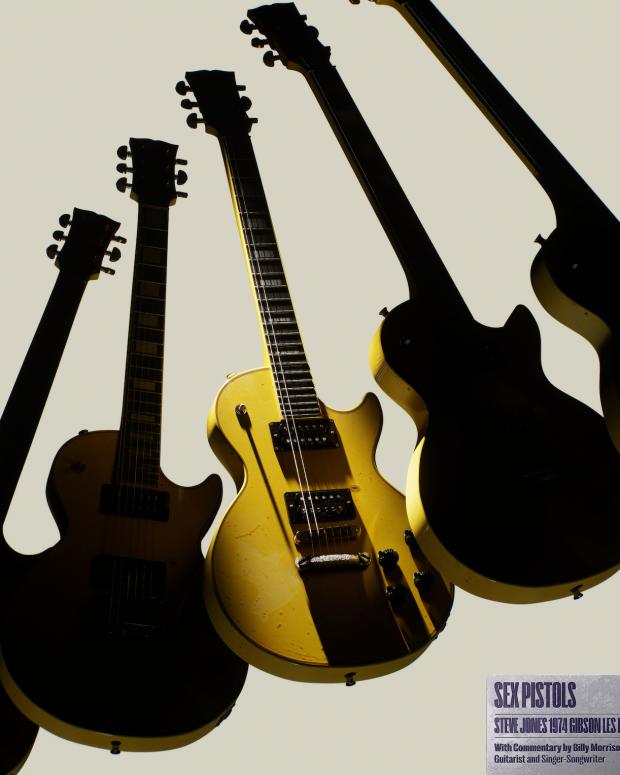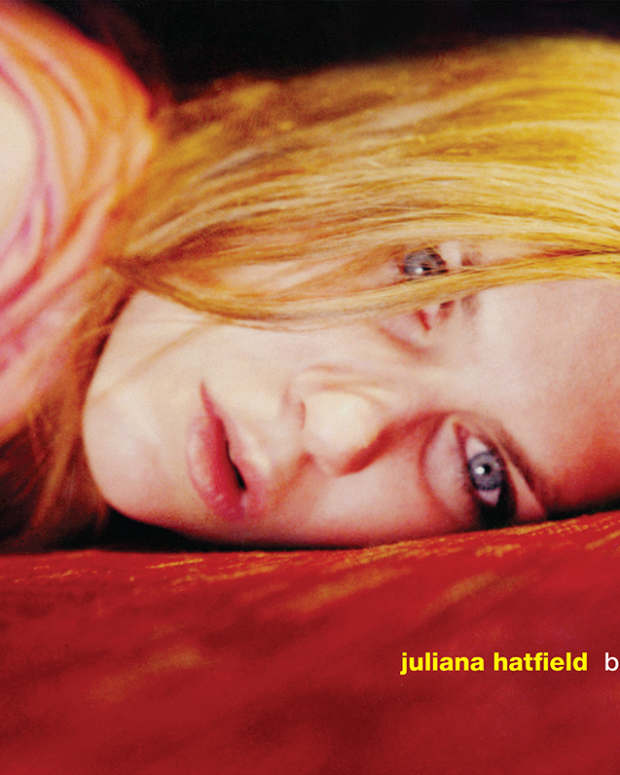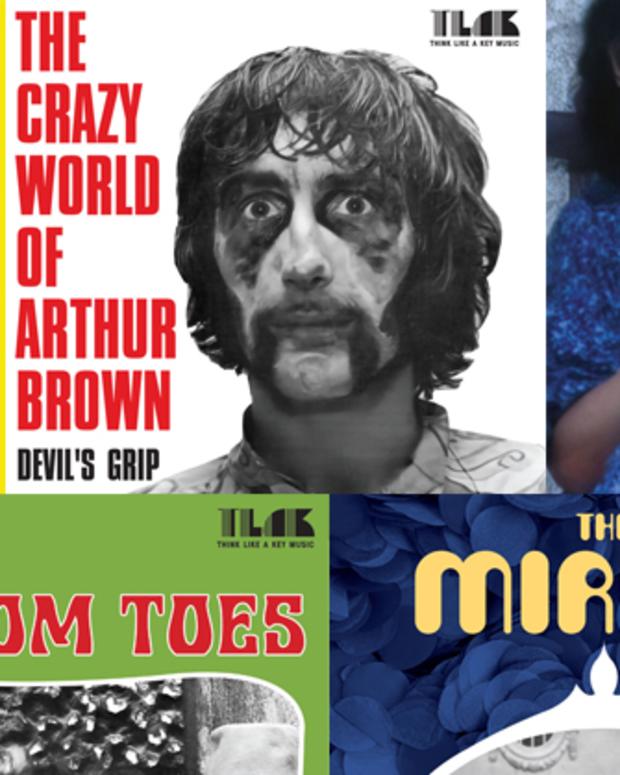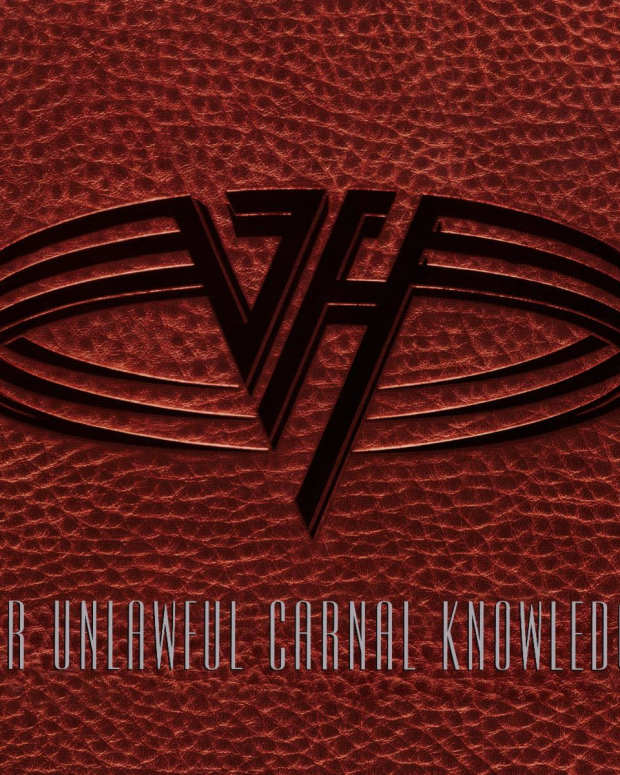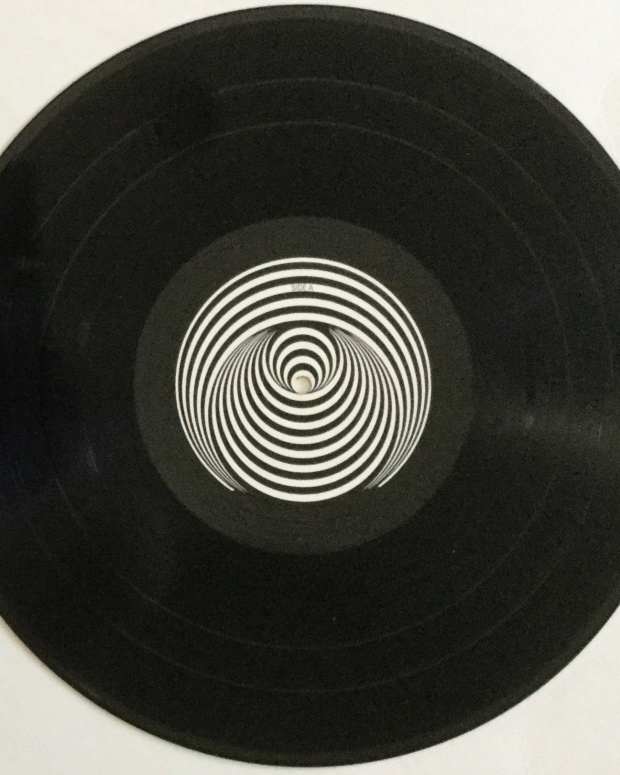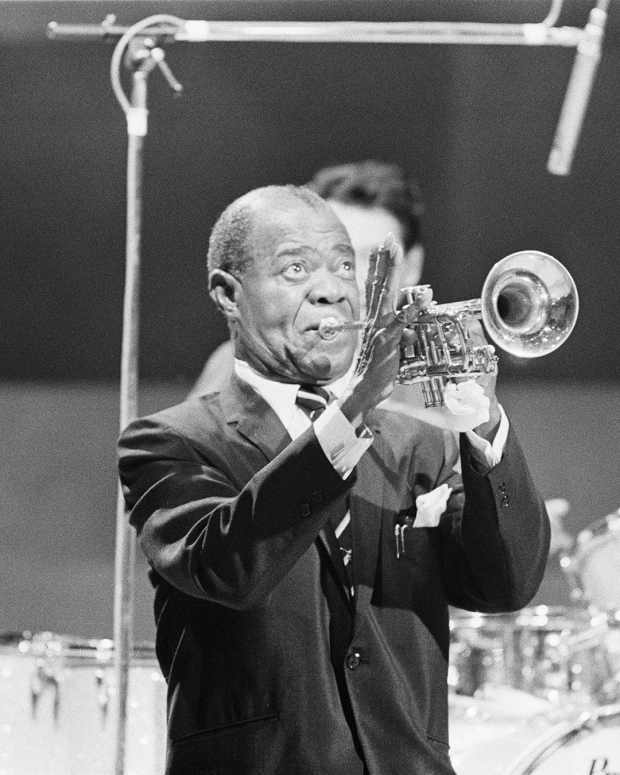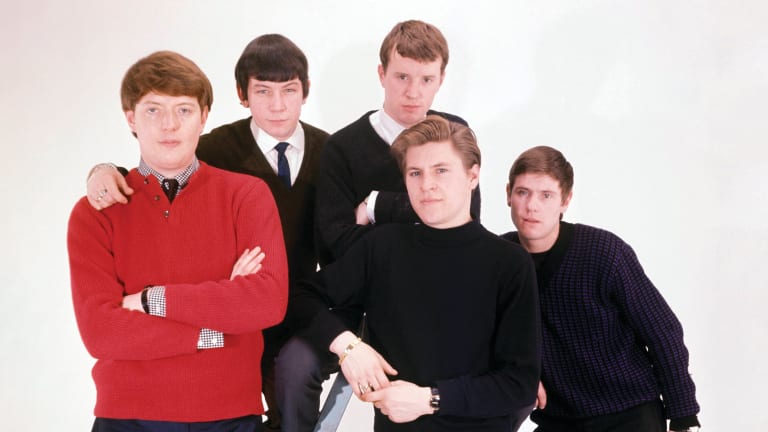
The Animals' drummer John Steel obligated to keep band's sound alive
Visit the Goldmine store for THE ANIMALS on vinyl! The Goldmine store is a music collector's one-stop shop of vinyl, CDs, box sets, collectibles, collecting supplies, audio equipment, music history books and Goldmine-only exclusives. Click HERE!
By Joe Matera
As one of the leading charges in the British Invasion of the early 1960s, The Animals’ grittier, R&B sound tinged with pop melodies connected with not only the youth of America at the time but also featured heavily on the U.S. charts. Their haunting version of “The House of the Rising Sun” earned them their first No. 1 on the Billboard Hot 100 chart, as well as the honor of becoming the third English act to top the U.S. pop-singles chart after The Beatles (British duo Peter and Gordon hit No. 1 with the Lennon-McCartney-penned “A World Without Love” just before The Animals).
The current incarnation of The Animals features co-founder and drummer John Steel at the helm. They recently toured Australia, and Goldmine writer/guitarist Joe Matera — who was also the opening act for the band at their two Melbourne shows — sat down with Steel for an exclusive interview.
GOLDMINE: Do you think The Animals should have gotten more credit for the British Invasion?
JOHN STEEL: We did get quite a bit of credit. We were hot enough to get on several times on The Ed Sullivan Show, and at that time in 1964, we were rated in the Top 5 bands of the British Invasion along with The Beatles, The Rolling Stones and The Kinks, so we were pretty highly regarded.
GM: Arriving on that first tour of the United States, must have felt like a whole new world had just opened to you all?
JS: Yeah, we were five Geordies from Newcastle, working-class lads, and everything that inspired us came from America. Growing up we watched American movies and read books from America, and everything was coming from that direction. So, for us in 1964 to suddenly be jetting off across the Atlantic to New York with a No. 1 hit record in the states was phenomenal. We couldn’t believe that we were going to be in America, where it was all happening: jazz, blues, rock and roll, everything that influenced our lives. And when we landed at JFK airport, we were greeted by girls screaming, something we weren’t used to, because back in the U.K., all our fans were guys. But suddenly here we were in America with 15-year-old teenyboppers as our fans.
GM: What caused you to first depart The Animals in 1966?
JS: I just had enough, as it had become a bit of a treadmill. And we also had bad management, too. Mike Jeffery, who was our manager at the time, also owned the Club a’Gogo in Newcastle, where we became the house band and that’s when we got signed up, too. But he wasn’t really a manager; he was more of a businessman. We got thrashed around and were on the road forever, and we never seemed to be making the kind of money we should have been making. Also, I got married quite early on in the story of The Animals in 1964, and I had reached a point where I just thought I couldn’t be bothered with it anymore.
GM: Were there any hard feelings at the time between you and Eric Burdon once you exited the band?
JS: No, Eric and I stayed friends.
GM: Were you surprised at Chas Chandler’s remarkable ability to spot talent like Jimi Hendrix and Slade?
JS: Yeah, I was, but I wasn’t there at that point. I mean, I knew The Animals weren’t going to last long anyway after I had left as Chas just felt it started to disintegrate anyway, and Alan [Price] had already left before me [in 1965]. When it did break up, I did some work for Chas from the late 1960s and into the 1970s on the business side of things when he was managing Slade.
It was then when he told me the story of how he discovered Hendrix. He told me that some girlfriend of his in New York had told him that he needed to see this fellow. So, she took him down to the club, and it was the Cafe Wha?, and it was Jimi Hendrix. And he immediately became Chas’ next project. He went seamlessly from being The Animals’ bass player to being a record producer and manager of Jimi Hendrix. It was a nice move!
GM: Some Animals fans might not realize that Andy Summers, the guitarist from The Police, played in The Animals in 1968 for a short period of time.
JS: That was after I had left the band, and it was as part of [Eric Burdon and] the New Animals. I knew Andy from when he was playing with Zoot Money, so I used to see him quite often. There was this club in Soho called the Flamingo Club, and Zoot Money’s Big Roll Band were regulars there — and Andy was only about 15 years old then, just a kid, but he was a hell of a good player.
GM: In your opinion, what do you consider to be the Top 5 Animals songs?
JS: Well, No. 1 would be “The House of the Rising Sun” because that was life-changing for all of us. Then “We Gotta Get Out of This Place” because that has become an anthem as well as a thing that features for anybody who’s moving on, leaving school, leaving a job or whatever. And though we didn’t write it, the Animals’ version became the definitive version of that song.
Next would be “Don’t Let Me Be Misunderstood.” Again, it is one that people sing along to, even if they don’t know all the words. They will still go, “Oh, I’m just a soul whose intentions are good…”
“It’s My Life” is again another one of those kicking-out songs, something young people can identify with, you know: “It’s my life and I’ll do what I want” — a rebel song. And lastly, “Bring It on Home to Me.” Again, we didn’t write this, too, but it was big all over the world, and in Scandinavia it’s as popular as “The House of the Rising Sun.” It was such a massive hit over there.
GM: If you had to choose two singles that changed your life, what would they be?
JS: One of the most significant things that happened, not only to me but to everybody of my age who were teenagers in the ’50s, and which became recognizable as the song and record that set it off for all of us, was “Rock Island Line” by Lonnie Donegan. That song was the first of what everybody called skiffle. Everybody of our age who wasn’t prepared to listen to the radio immediately thought, Three chords? I can do that! It encouraged people of our age to play music because it was a simple three-chord strum thing, and before you knew it, everybody was in a skiffle group, like John Lennon and The Quarrymen.
And in that same year the first Elvis Presly record that any of us heard, “Heartbreak Hotel,” was life changing, too. That record just blew everybody away. We all thought, “What the hell is that?” Everybody just assumed he was black for a start, but the whole recording of it was new, too, with the echo chamber thing and all. The whole vibe of it was great, too. Here was a young white guy coming up with something like that which wasn’t mainstream pop. And those two records happened within a few months of each other, and as far as I’m concerned, they sparked off what became the British Invasion.
For brand new reissued vinyl of The Animals, go to the Goldmine store HERE.
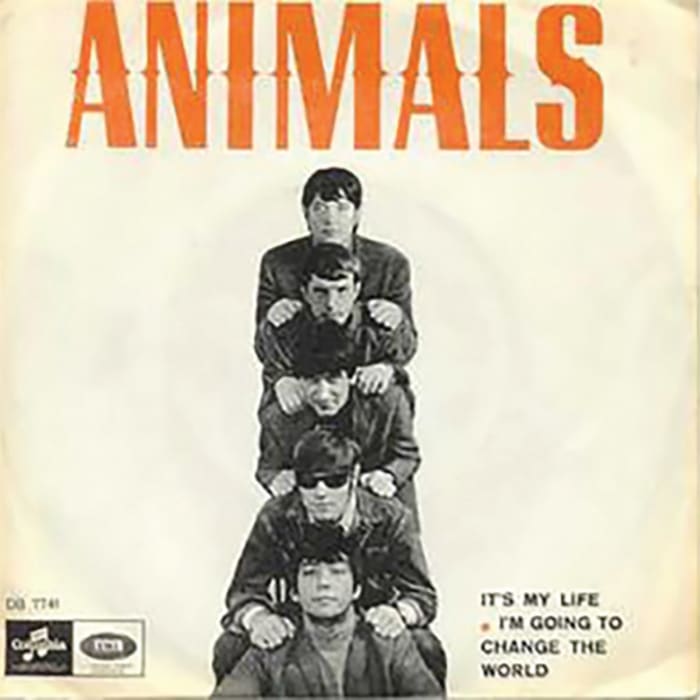

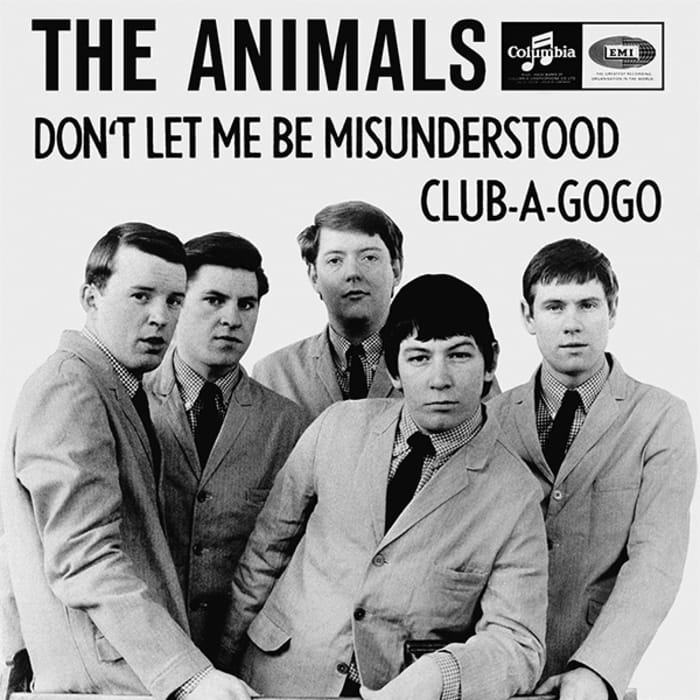
The Animals Select Singles Discography
45s
ABKCO
■ 4025 House of the Rising Sun/Bring It on Home to Me 1973 $8
■ 4026 We Gotta Get Out of This Place/It’s My Life 1973 $8
■ Abkco 4037 Don’t Let Me Be Misunderstood/Talkin’ About You 1973 $8
■ Abkco 4038 I’m Cryin’/Boom Boom 1973 $8
IRS
■ 9920 The Night/No John No 1983 $8
■ 9923 Love Is for All Time/It’s Too Late 1983 $8
JET
■ 1070 Fire on the Sun/Riverside County 1977 $10
MGM
(Note: For copies with picture sleeves, add 50 percent to the worth)
■ 11 Celebrity Scene: The Animals 1967 $200
- Box set of five singles (13791-13795). Price includes box, all five singles, jukebox title strips, bio. Records are sometimes found by themselves, so they are also listed separately.
■ 13242 Gonna Send You Back to Walker (Gonna Send You Back to Georgia)/Baby, Let Me Take You Home 1964 $30
■ 13264 The House of the Rising Sun/Talkin’ About You 1964 $40
■ 13274 I’m Crying/Take It Easy Baby 1964 $30
■ 13298 Boom Boom/Blue Feeling 1964 $40
■ 13311 Don’t Let Me Be Misunderstood/Club A-Go-Go 1964 $30
■ 13339 Bring It on Home to Me/For Miss Caulker 1965 $30
■ 13382 We Gotta Get Out of This Place/I Can’t Believe It 1965 $30
■ 13414 It’s My Life/I’m Going to Change the World 1965 $35
■ 13468 Inside-Looking Out/You’re on My Mind 1966 $30
■ 13514 Don’t Bring Me Down/Cheating 1966 $35
(As Eric Burdon and the Animals)
MGM
■ 13582 See See Rider/She’ll Return It 1966 $20
■ 13636 Help Me Girl/That Ain’t Where It’s At 1966 $20
■ 13721 When I Was Young/A Girl Called Sandoz 1967 $20
■ 13769 San Franciscan Nights/Good Times 1967 $20
■ 13791 Don’t Bring Me Down/When I Was Young 1967 $20
■ 13792 See See Rider/Hey Gyp 1967 $25
■ 13793 Inside-Looking Out/Help Me Girl 1967 $25
■ 13794 San Franciscan Nights/Good Times 1967 $20
■ 13795 It’s All Meat/The Other Side of This Life 1967 $30
■ 13868 Monterey/Ain’t That So 1967 $20
■ 13917 Anything/It’s All Meat 1968 $30
■ 13939 Sky Pilot (Part 1)/Sky Pilot (Part 2) 1968 $20
- Second pressings have blue and gold labels
■ 13939 Sky Pilot (Part 1)/Sky Pilot (Part 2) 1968 $30
- First pressings have black labels
■ 14013 River Deep, Mountain High/White Houses 1968 $20.00



